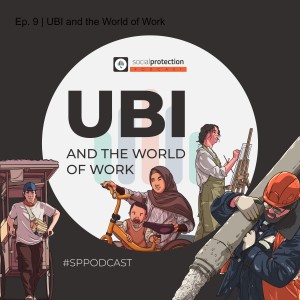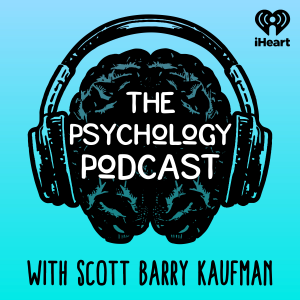

This is the first episode of a two-part series about UBI. You can find the second episode here.
The first episode of the year in the Social Protection Podcast brings a radical proposal for extending social protections: the Universal Basic Income, or UBI.
Fundamentally, a universal basic income is a benefit provided in cash without conditions to everyone. It is a large topic that has been generating heated discussions in the social protection field for many years now. In that sense, we divided this discussion into two episodes.
In this episode, we'll focus on the UBI and the World of Work. Fears around automation and the changing nature of work fuel popular and policy interest in the UBI. But the prevailing narrative that welfare makes people lazy and less inclined to work may be one of the biggest obstacles to overcome if a UBI is ever to be achieved.
We'll unpack the evidence around whether a UBI could change the way we value work and what that could mean for gender equality and workers' bargaining power. We'll also look at how arguments for and against the UBI play out across the political spectrum.
Then in next month's episode, we'll look at how a UBI could fit more broadly into social protection systems, asking whether it would be a major disruption or just another plank in the social protection floor.
Our guests for this episode are:
- Francesca Bastagli is Director of the Equity and Social Policy programme and Principal Research Fellow at ODI.
- Jurgen De Wispelaere - Assistant Professor at the Stockholm School of Economics in Riga and Adjunct Professor in Philosophy of Social Policy at Tampere University and
Links from the episode
Emergency Basic Income during the Pandemic
Exit strategy or exit trap? Basic income and the ‘power to say no’ in the age of precarious employment
The Rise (and Fall) of the Basic Income Experiment in Finland
Exploring Universal Basic Income: A Guide to Navigating Concepts, Evidence, and Practices
Webinar - Exploring universal basic income: lessons for COVID-19 response and beyond
Event - BIEN 2022: Crisis and Transformation
Plus our monthly round-up of ‘Quick Wins’, highlighting news, achievements and research that have sparked our interest.
Quick Wins from Zehra Rizvi - Social protection in emergencies specialist (consultant)
The big SP e-Vent: You spoke up, we listened - but what should we do next?
More Episodes
All Episodes>>Creat Yourt Podcast In Minutes
- Full-featured podcast site
- Unlimited storage and bandwidth
- Comprehensive podcast stats
- Distribute to Apple Podcasts, Spotify, and more
- Make money with your podcast












